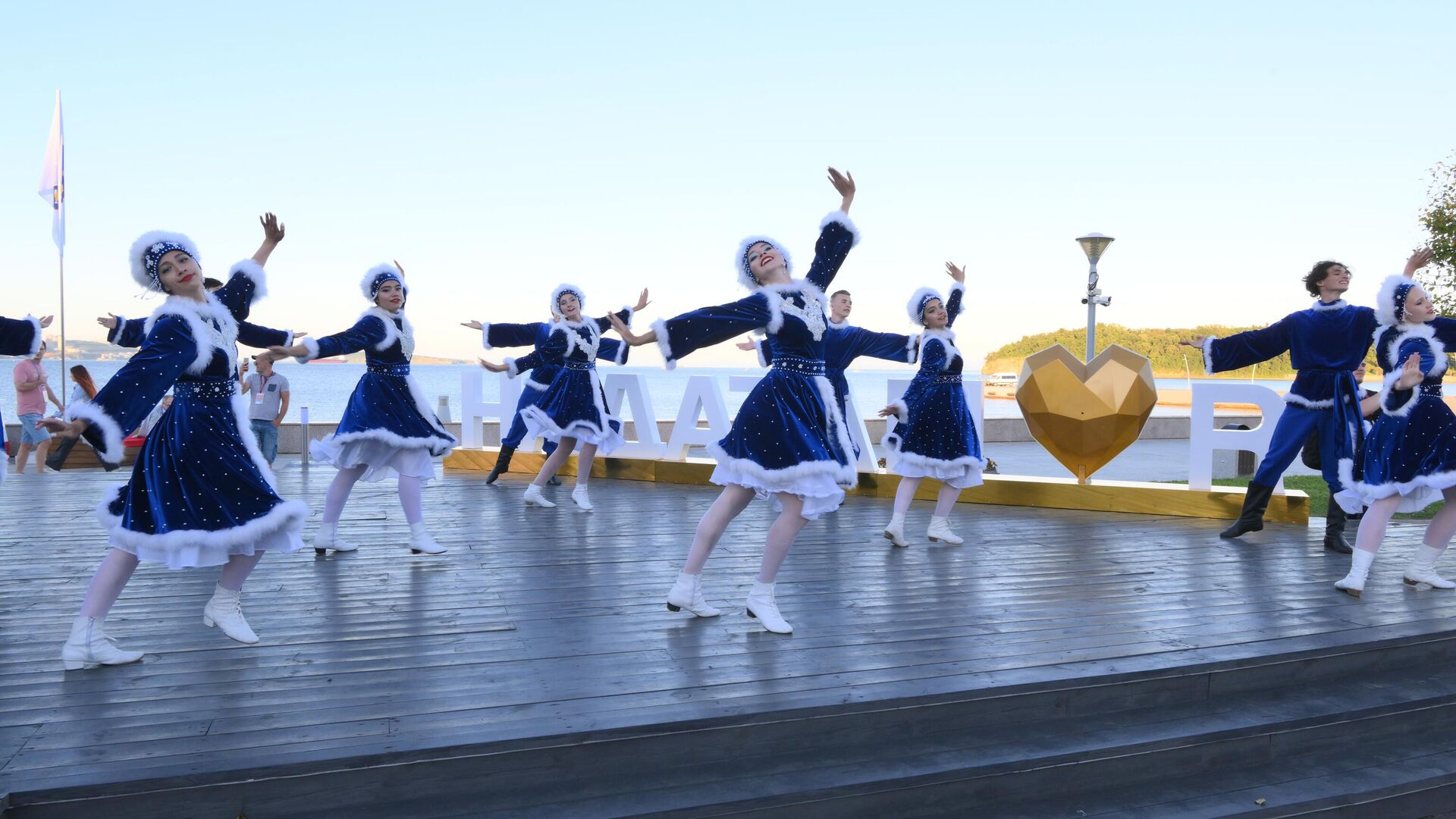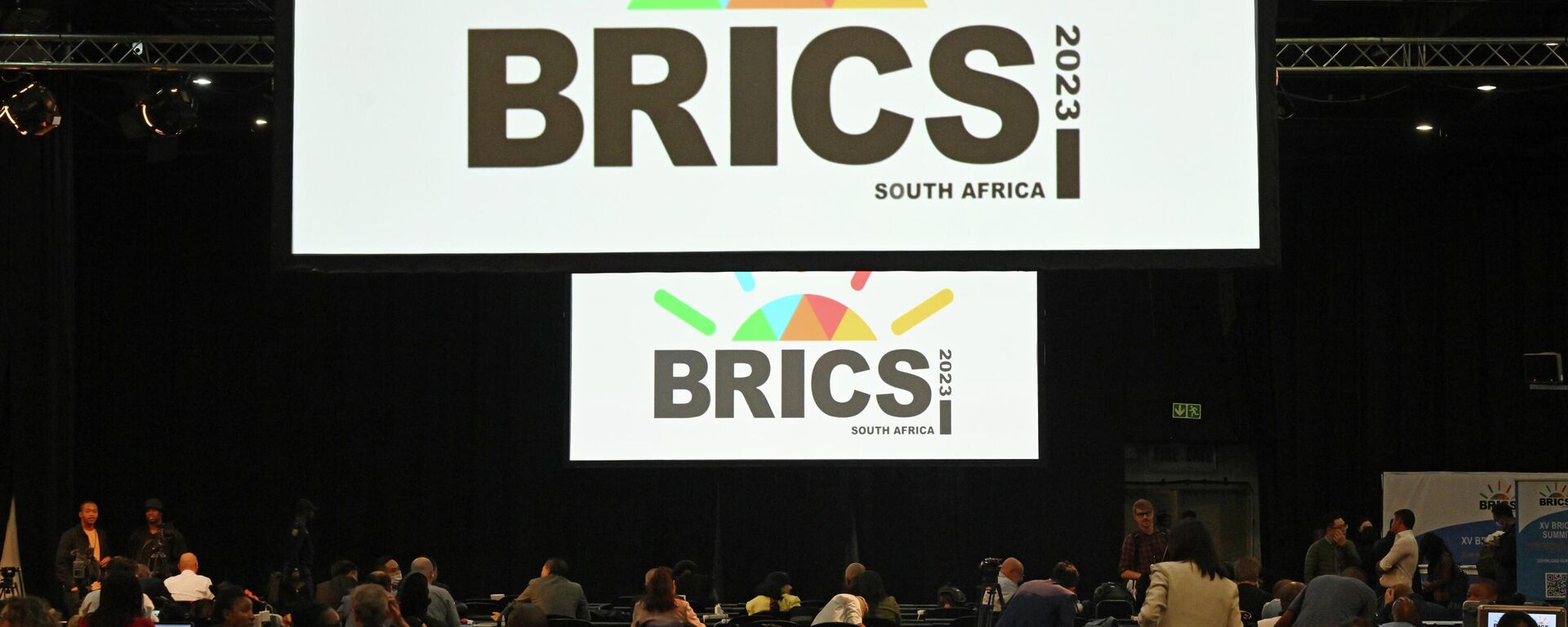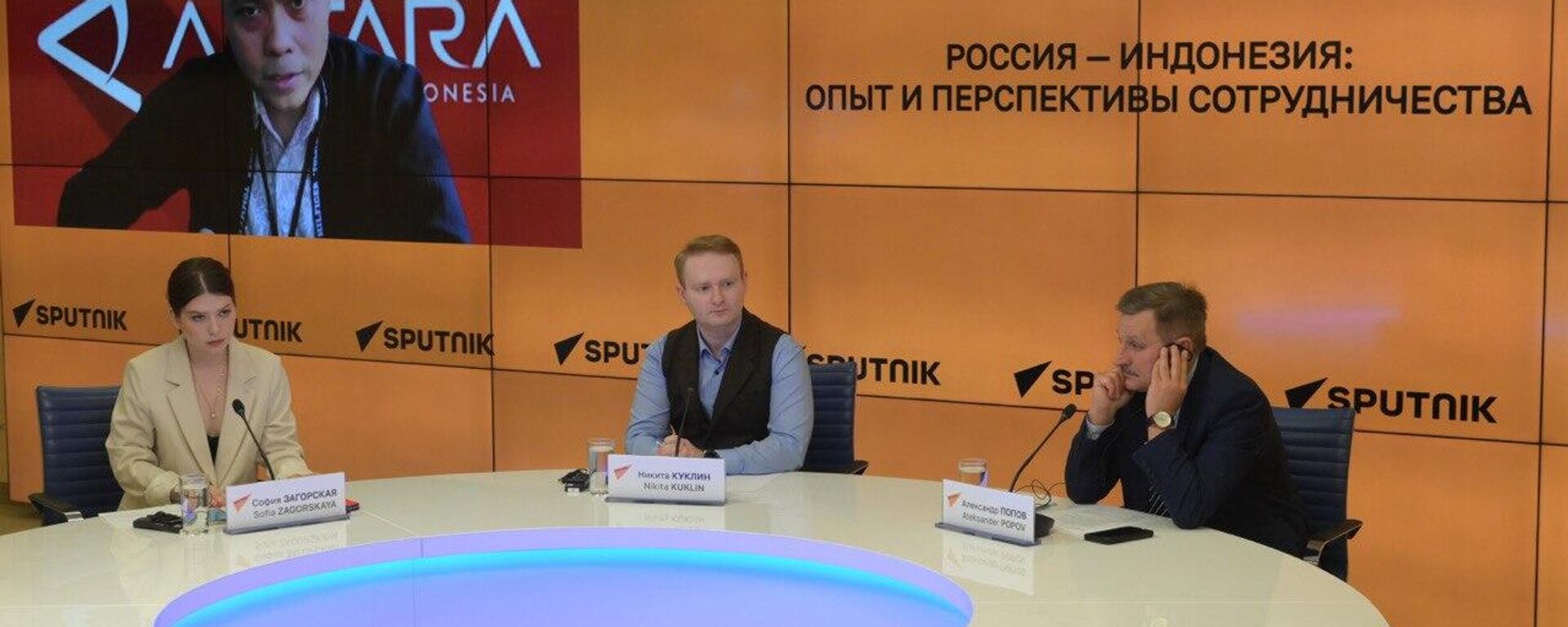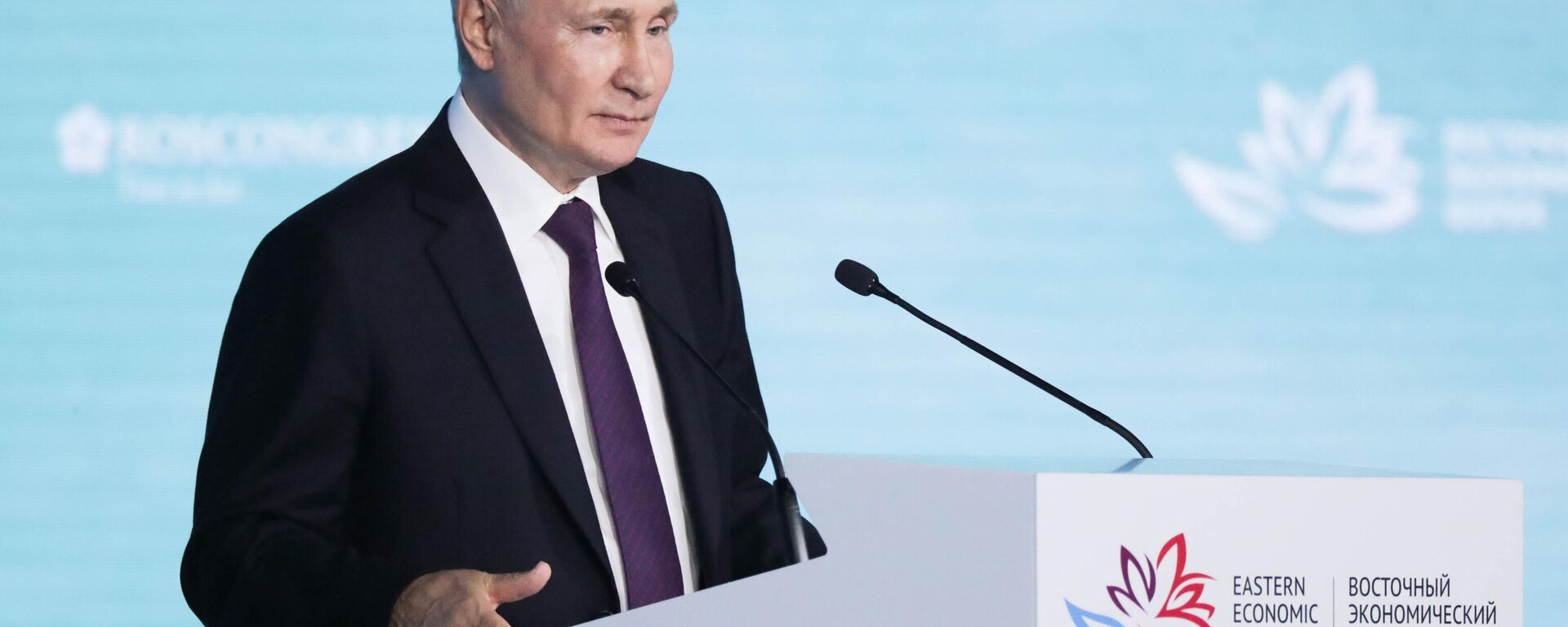Eastern Economic Forum Signals Russia’s Long Game ‘Strategy of Orienting Toward the Orient’
18:11 GMT 03.09.2024 (Updated: 16:28 GMT 05.09.2024)

© Sputnik / Ekaterina Chesnokova
/ Subscribe
The Eastern Economic Forum kicked off in Vladivostok on Tuesday, with the four-day event serving as a platform for the discussion of initiatives aimed at developing the Russian Far East, and expanding regional cooperation with and between Asia-Pacific region countries. Economists tell Sputnik about the special significance of this year’s forum.
The Eastern Economic Forum is more than just a regional economics-centered gathering. It’s a meeting place attracting Asia-Pacific powers big and small alike searching for new prospects for cooperation and equality-based architecture for regional partnerships.
With around 60 percent of the world’s population living in Asia and the Pacific, and the region accounting for nearly 40 percent of global GDP and representing about 22 percent of the world’s total land area, the region represents a goldmine of economic and political opportunities for Moscow and its partners amid the continued tectonic shift in global affairs taking place today.
The economic development of the Russian Far East “is of immense interest to China, for several reasons,” University of International Business and Economics professor John Gong told Sputnik, commenting on the People’s Republic’s interest in the EFF.
“First of all, as a result of the Russia-Ukraine conflict, Russia has adopted a strategy of orienting to the orient, essentially against the backdrop of massive sanctions against Russia imposed by the Western countries. What it means is that there are lot of investments being made to improve the infrastructure in the Far East to accommodate more trade, more economic interactions with countries in Asia, particularly with China,” Dr. Gong explained.
“Against that backdrop, this conference speaks volumes about how the Russian economy is totally transforming, in my opinion, and further highlighting the importance of this economic forum,” the academic added.
EASTERN ECONOMIC FORUM SIGNALS RUSSIAN ‘STRATEGY OF ORIENTING TOWARDS THE ORIENT’
— Sputnik (@SputnikInt) September 3, 2024
The economic development of the Russian Far East “is of immense interest to China, for several reasons,” University of International Business and Economics professor John Gong told Sputnik,… pic.twitter.com/WtdbYjIFD4
Pointing to Russia’s new Asia-focused infrastructure initiatives, from the Northern Sea Route transit corridor to new energy pipelines heading eastward, Gong said he expects these multi-billion dollar mega-projects to “contribute immensely to the bilateral economic relationship between China and Russia” in the years to come.
What’s more, Dr. Gong said, Russia is responding to the continued shift to Asia of the “global economic epicenter,” including to China and Southeast Asia. “I think we are rapidly entering a multipolar world, and the world is no longer monopolized by the richest club in the world – I’m referring to the G7 club,” Gong stressed.
Breathing New Life Into the Spirit of the Non-Aligned Movement
The new force in international politics and economics represented by the expanding BRICS bloc is a powerful new take on an old idea dreamt up by one of Southeast Asia’s most celebrated post-independence leaders, Rajah Rasiah, executive director of the University of Malaya’s Asia-Europe Institute, told Sputnik, commenting on the EFF’s role in facilitating new ties between the economies of Eurasia.
“The Eurasian Economic Union has recently started brightly to establish political and economic ties with ASEAN and the APEC, albeit its initiatives do not cross the US-centered partners. This is a good start as it rekindles the initiative Indonesia’s first president – Sukarno, began when organizing the 1955 Bandung Africa-Asia Conference on the Non-Aligned Movement,” Dr. Rasiah recalled.
“The recent visit of Russian officials, including the deputy prime minister, to Malaysia is one example that has triggered interest among some Southeast Asian countries to join the Brazil, Russia, India, China and South Africa (BRICS) group,” the academic said, citing the BRICS bloc, in combination with initiatives at the EEU level vis-à-vis ASEAN, as tools through which “all countries will have sufficient space to address their interests without any coercion from any one or more superpowers.”
Russia, “endowed with enormous oil and gas reserves” and “seeking to extend [cooperation projects] beyond India and China to include the ASEAN countries,” also has tremendous significance and potential to contribute to the development of the Asia-Pacific region, Rasiah said.
“Malaysian Prime Minister, Ibrahim Anwar is also going to attend the Eastern Economic Forum, which speaks volumes about Malaysia’s relationship with Russia,” Dr. Gong said. “And China also sent a high-ranking government official, Mr. Han Zheng, to attend the conference as well. So overall, as you can see, still a lot of countries, particularly the Global South developing world, maintain a very good relationship with Russia,” said, highlighting the failure by the US and its allies to isolate and suffocate Russia politically and economically.




